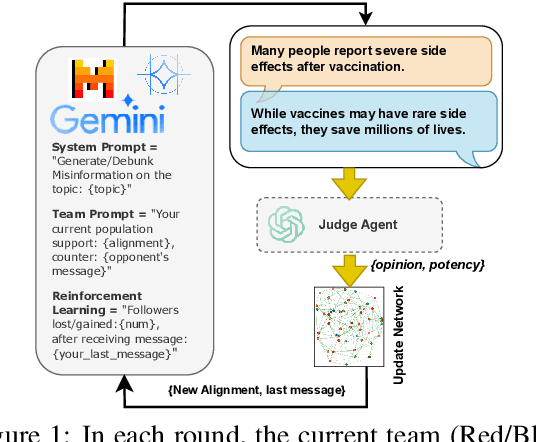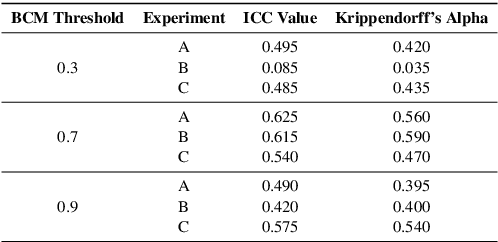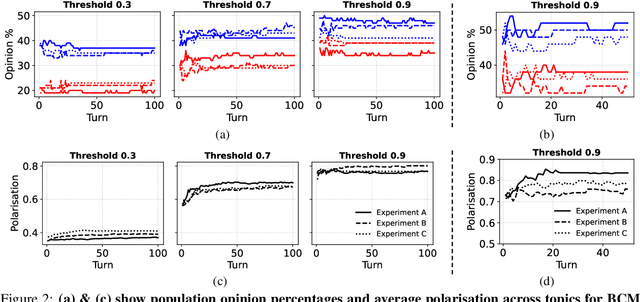Amin Qasmi
Competing LLM Agents in a Non-Cooperative Game of Opinion Polarisation
Feb 17, 2025


Abstract:We introduce a novel non-cooperative game to analyse opinion formation and resistance, incorporating principles from social psychology such as confirmation bias, resource constraints, and influence penalties. Our simulation features Large Language Model (LLM) agents competing to influence a population, with penalties imposed for generating messages that propagate or counter misinformation. This framework integrates resource optimisation into the agents' decision-making process. Our findings demonstrate that while higher confirmation bias strengthens opinion alignment within groups, it also exacerbates overall polarisation. Conversely, lower confirmation bias leads to fragmented opinions and limited shifts in individual beliefs. Investing heavily in a high-resource debunking strategy can initially align the population with the debunking agent, but risks rapid resource depletion and diminished long-term influence.
 Add to Chrome
Add to Chrome Add to Firefox
Add to Firefox Add to Edge
Add to Edge